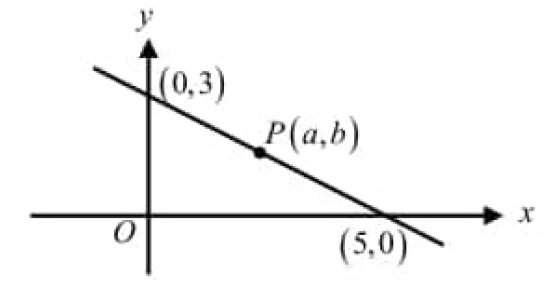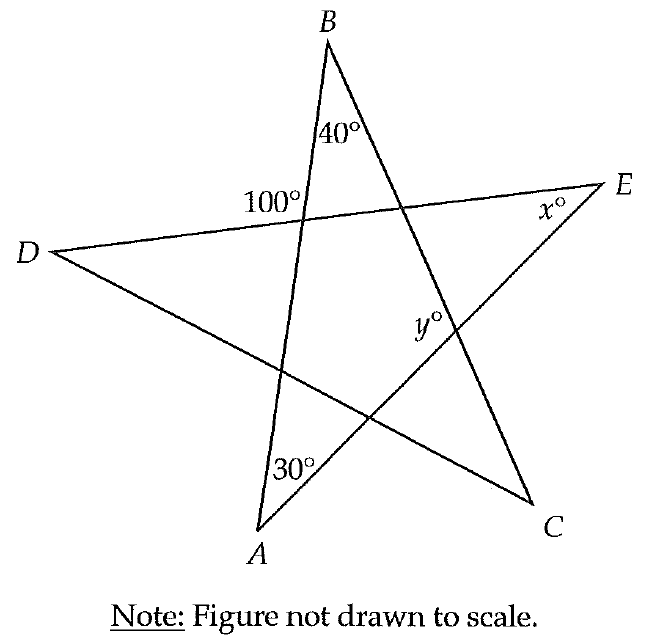INDEFINITE INTEGRALS USING PROPERTIES
Question 1 :
Integrate the following with respect to x:
ex (tan x + log sec x)
Solution :
= ∫ex (tan x + log sec x) dx
Let f(x) = log sec x
Differentiating with respect to "x"
f'(x) = (1/sec x) (sec x tan x) dx
f'(x) = tan x
∫ex (tan x + log sec x) dx = ∫ex (f(x) + f'(x)) dx
= ex f(x) + c
= ex log sec x + c
Question 2 :
Integrate the following with respect to x:
ex [(x - 1)/2x2]
Solution :
= ∫ex [(x - 1)/2x2] dx
= ∫ex [(x/2x2) - (1/2x2)] dx
= ∫ex [(1/2x) - (1/2x2)] dx
Let f(x) = 1/2x then f'(x) = -1/2x2
Hence ∫ex [(1/2x) - (1/2x2)] dx is in the form ∫ex (f(x) + f'(x)) dx
= ex f(x)
= ex (1/2x)
= ex/2x
Question 3 :
Integrate the following with respect to x:
ex sec x (1 + tan x)
Solution :
= ∫ex sec x (1 + tan x) dx
= ∫ex (sec x + sec x tan x) dx
Let f(x) = sec x, then f'(x) = sec x tan x
Hence ∫ex (sec x + sec x tan x) dx is in the form ∫ex (f(x) + f'(x)) dx
= ex f(x)
= ex sec x + c
Question 4 :
Integrate the following with respect to x:
ex (2 + sin 2x) / (1 + cos 2x)
Solution :
= ∫ex [(2 + sin 2x) / (1 + cos 2x)] dx
sin 2x = 2 sin x cos x
1 + cos 2x = 2 cos2x
= ∫ex [(2 + 2 sin x cos x) / 2 cos2x] dx
= ∫ex [(2 / 2 cos2x) + (2 sin x cos x / 2 cos2x)] dx
= ∫ex [(1/cos2x) + (sin x / cosx)] dx
= ∫ex [sec2x + tan x] dx ------(1)
Let f(x) = tan x then f'(x) = sec2x
Hence (1) is in the form
= ∫ex [f(x) + f'(x)] dx
= ex f(x) + c
= ex tan x + c
Question 5 :
Integrate the following with respect to x:
e^tan-1x [(1 + x + x2) / (1 + x2)]
Solution :
In order to compare the given question with the form ∫ex [f(x) + f'(x)] dx, we must have power "x" to the power of "e".
Let t = tan-1x
x = tan t
dt = 1/1 + x2
∫e^tan-1x [(1 + x + x2) / (1 + x2)] dx
= ∫et (1 + tan t + tan2t) dt
Here 1 + tan2t = sec2t
= ∫et (tan t + sec2t) dt
f(x) = tan t then f'(x) = sec2t
= et tan t + c
= e^tan-1x tan (tan-1x) + c
= x e^tan-1x + c
Question 6 :
Integrate the following with respect to x:
log x / (1 + log x)2
Solution :
= ∫ [log x / (1 + log x)2] dx
Let t = log x ==> et = x
Differentiating with respect to "x", we get
et dt = dx
= ∫ [t/(1 + t)2] et dt
= ∫ et [(t + 1 - 1) /(1 + t)2] dt
= ∫ et [((1 + t)/(1 + t)2) - 1/(1 + t)2] dt
= ∫ et [1/(1 + t) - 1/(1 + t)2] dt
If f(t) = 1/(1 + t) then f'(t) = -1/(1 + t)2
= et f(t) + c
= et (1/(1 + t)) + c
= x/(1 + log x) + c
Kindly mail your feedback to v4formath@gmail.com
We always appreciate your feedback.
©All rights reserved. onlinemath4all.com
Recent Articles
-
Digital SAT Math Problems and Solutions (Part - 134)
Apr 02, 25 12:40 AM
Digital SAT Math Problems and Solutions (Part - 134) -
SAT Math Resources (Videos, Concepts, Worksheets and More)
Apr 02, 25 12:35 AM
SAT Math Resources (Videos, Concepts, Worksheets and More) -
Digital SAT Math Problems and Solutions (Part 135)
Apr 02, 25 12:32 AM
Digital SAT Math Problems and Solutions (Part 135)

